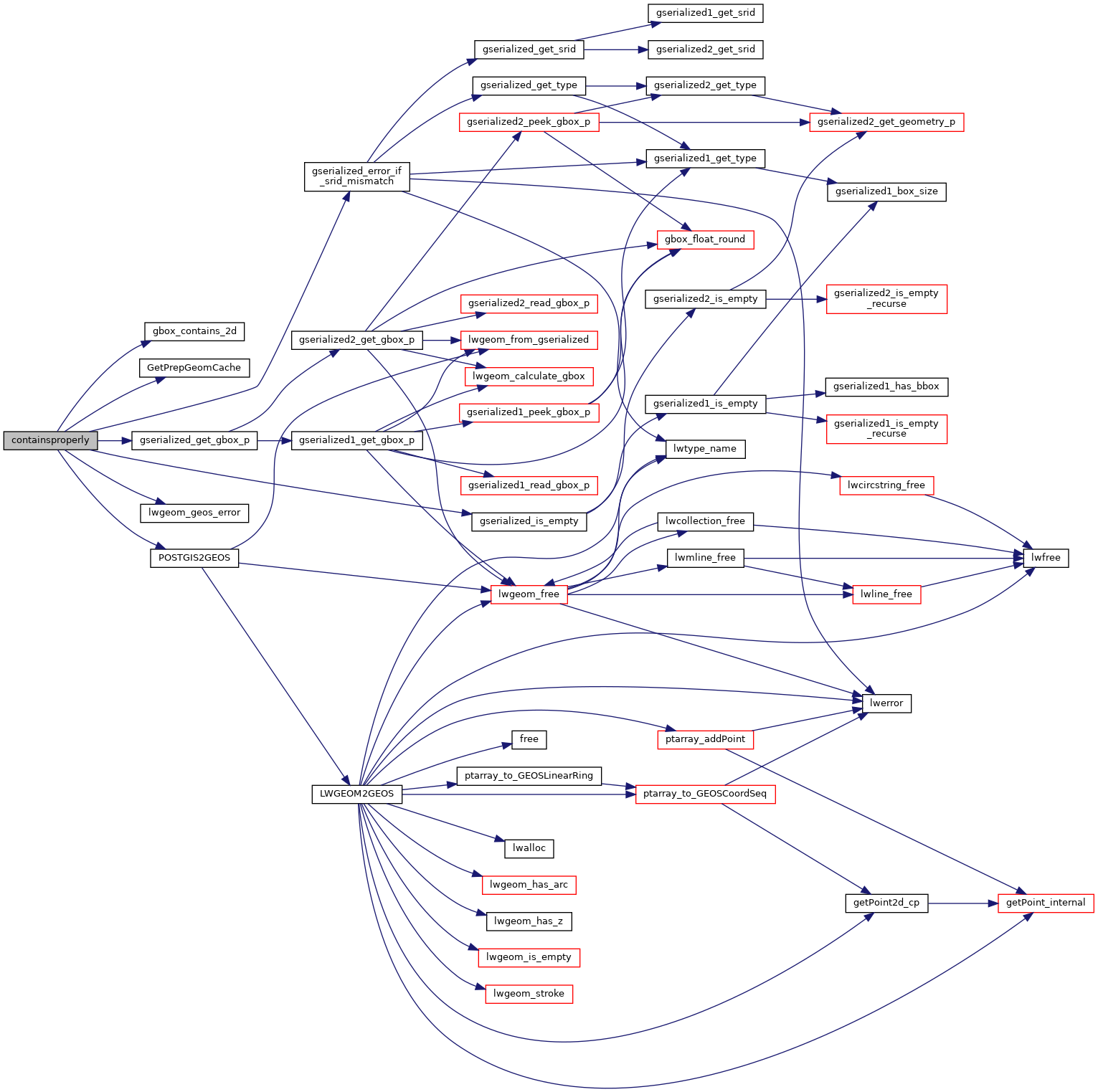◆ containsproperly()
| Datum containsproperly | ( | PG_FUNCTION_ARGS | ) |
Definition at line 1815 of file postgis/lwgeom_geos.c.
int gbox_contains_2d(const GBOX *g1, const GBOX *g2)
Return LW_TRUE if the first GBOX contains the second on the 2d plane, LW_FALSE otherwise.
Definition: gbox.c:339
void gserialized_error_if_srid_mismatch(const GSERIALIZED *g1, const GSERIALIZED *g2, const char *funcname)
Definition: gserialized.c:404
int gserialized_get_gbox_p(const GSERIALIZED *g, GBOX *gbox)
Read the box from the GSERIALIZED or calculate it if necessary.
Definition: gserialized.c:65
int gserialized_is_empty(const GSERIALIZED *g)
Check if a GSERIALIZED is empty without deserializing first.
Definition: gserialized.c:152
PrepGeomCache * GetPrepGeomCache(FunctionCallInfo fcinfo, GSERIALIZED *g1, GSERIALIZED *g2)
Given a couple potential geometries and a function call context, return a prepared structure for one ...
Definition: lwgeom_geos_prepared.c:452
GEOSGeometry * POSTGIS2GEOS(GSERIALIZED *pglwgeom)
Definition: postgis/lwgeom_geos.c:2686
Definition: liblwgeom.h:338
Definition: liblwgeom.h:429
const GEOSPreparedGeometry * prepared_geom
Definition: lwgeom_geos_prepared.h:60
Definition: lwgeom_geos_prepared.h:56
References gbox_contains_2d(), PrepGeomCache::gcache, GetPrepGeomCache(), gserialized_error_if_srid_mismatch(), gserialized_get_gbox_p(), gserialized_is_empty(), HANDLE_GEOS_ERROR, lwgeom_geos_error(), POSTGIS2GEOS(), and PrepGeomCache::prepared_geom.
Here is the call graph for this function:
